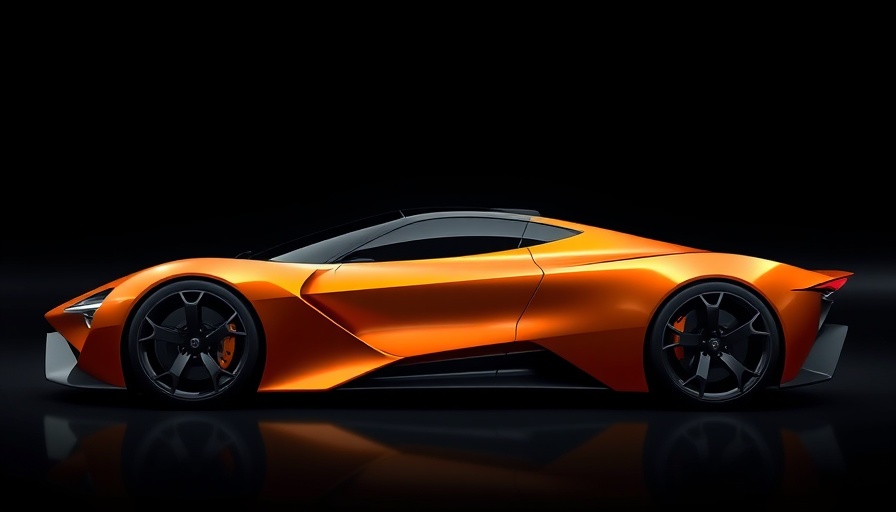
Introducing the Garagisti & Co GP1: A New Era of Supercars
As the electric car market captures significant attention, the traditional supercar is making a dramatic comeback with a new contender: the Garagisti & Co GP1. This V-12 masterpiece aims to captivate enthusiasts with its raw mechanical prowess, maintaining a deep-rooted connection to driving that many feel is lost in the quietude of electric vehicles.
Unmatched Performance with the V-12 Engine
At the heart of the GP1 lies a 6.6-liter naturally aspirated V-12 engine capable of producing a staggering 800 horsepower at 9,000 rpm and over 516 pound-feet of torque. This power is meticulously transferred through a six-speed manual gearbox, enhancing driver engagement in a world increasingly dominated by automated transmissions. The GP1's lightweight design—just 2,204 pounds—couples speed with agility, promising a driving experience that is both exhilarating and authentic.
A Design Tribute to Automotive Artistry
The GP1 isn’t just about power; it’s a striking piece of automotive art. Crafted with inspiration drawn from the golden age of supercar design, it combines sculpted, aerodynamic lines reminiscent of the Lancia Stratos and Lamborghini Countach, both revered for their aesthetic appeal and performance. The aerodynamic prowess is highlighted by an expansive rear diffuser and prominent exhausts, instilling a sense of performance just by looking at it.
Minimalism in the Interior
Inside the GP1, the design ethos continues with a focus on simplicity and functionality. Steering clear of oversized screens and complex controls, Garagisti & Co emphasizes a driver-centric cockpit, allowing pure focus on the driving experience. With traditional switches and a gear lever, every component is intentionally positioned for ergonomic ease.
Limited Production: A Collector’s Dream
Garagisti & Co’s GP1 will see a limited run of just 25 units, with each vehicle starting at around $3.3 million. For automotive enthusiasts and collectors, this exclusivity not only represents ownership of a high-performance supercar but also a piece of automotive history. The immediate rush for these vehicles reflects the ongoing desire for authentic driving experiences in a rapidly evolving automotive landscape.
Conclusion: Rediscover the Art of Driving
The Garagisti & Co GP1 emerges as a beacon of hope for traditionalists who yearn for the joys of driving. With its focus on mechanical authenticity and aesthetic appeal, it offers enthusiasts a chance to reconnect with the very essence of automotive passion. Whether for collectors or automotive connoisseurs, the GP1 stands to redefine the boundaries of modern supercars.
 Add Row
Add Row  Add
Add 




Write A Comment